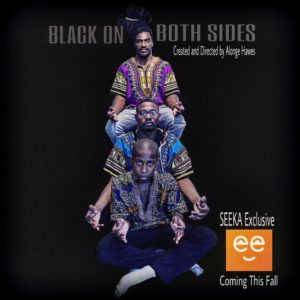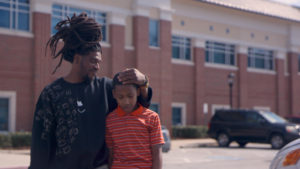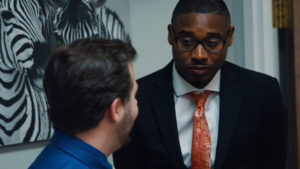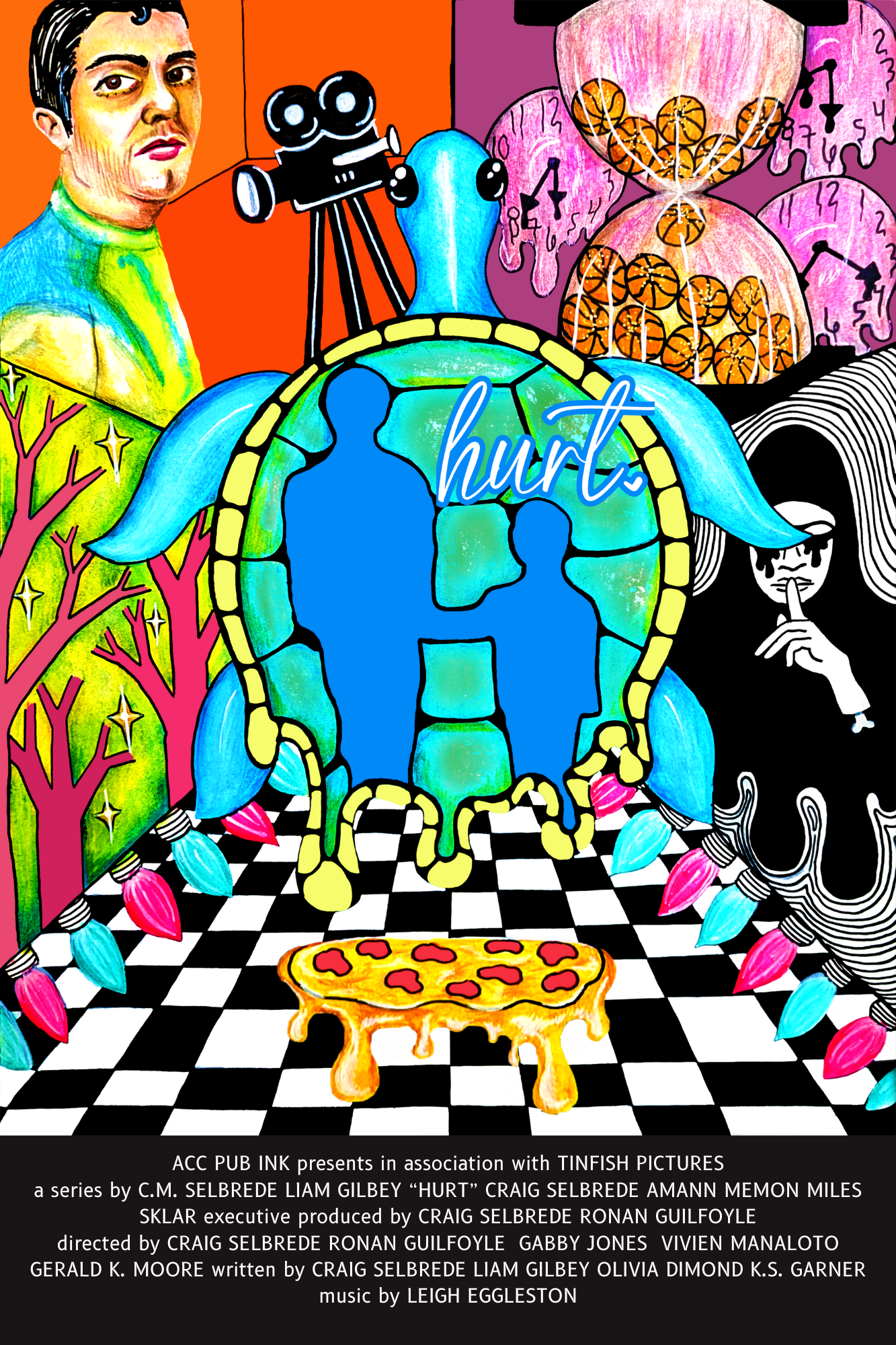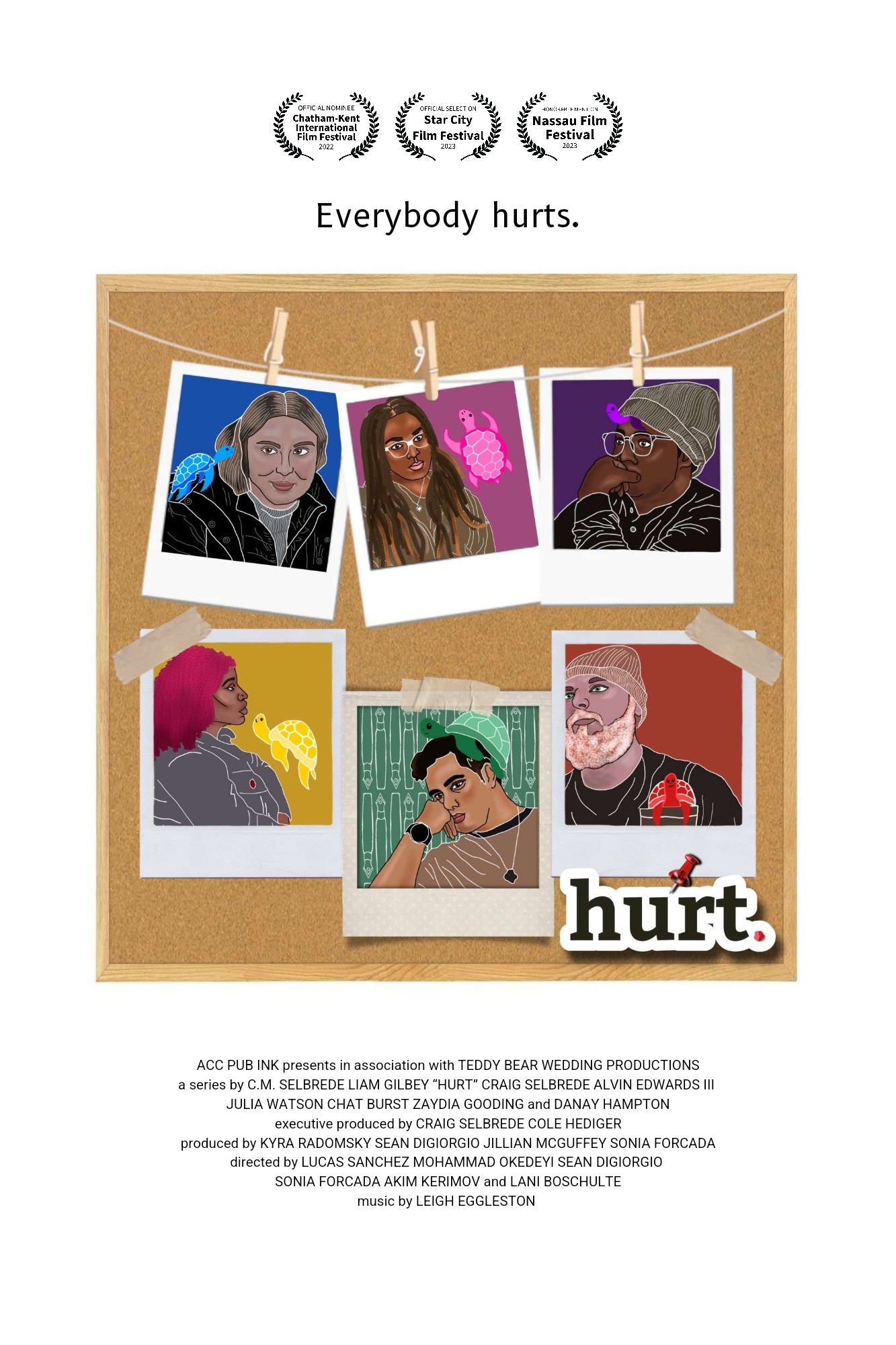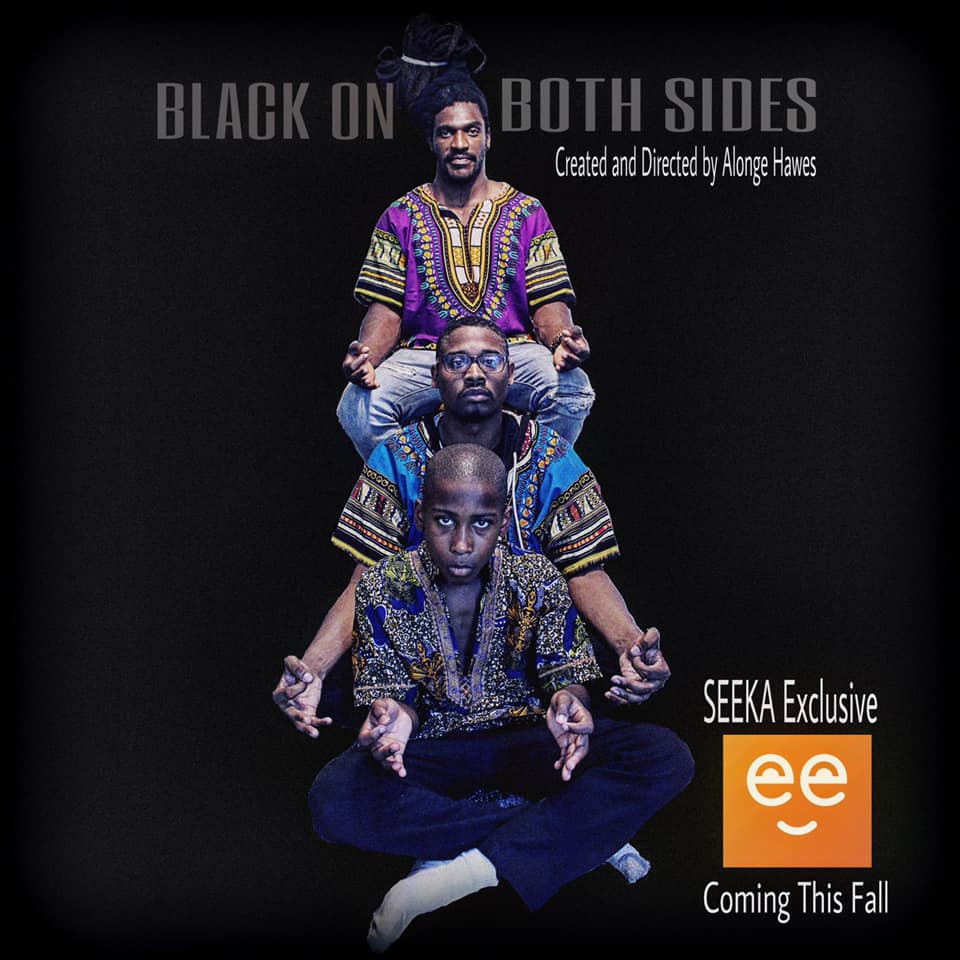
Web Series Review “Black On Both Sides” Season 1
WATCH THE TRAILER HERE
First, the Recap:
The great divide that is racial disharmony. There’s the seeking to restore identity, quash conflict both outward and internal, stand firm in one’s convictions, and demonstrate a willingness to not back down, making the subsequent decisions that will define–or potentially destroy–all who find themselves within firing distance of ever-changing “truths” and cultural facades. The question will then become, as it is so often–is the final outcome, and price, worth the risks? In Atlanta, Anasi Moor (Alonge Hawes) is about to make a move into management at Legacy Wireless. Facing the constant uphill battle against racism, non-understanding, ghosts of the past, questionings of motive by his own friends, and the ethnic pride he so deeply takes to heart, it becomes a journey encompassing retribution, reconciliation, and steadfast belief in being who he is, a part of a world that still so often sees him as something less than capable, perhaps even less than a human being.
Next, my Mind:
There is absolutely no coincidence in timing for the eight episode first season of this web series to be released for consideration, arriving from writer/director/executive producer/actor Alonge Hawes, producers Shani Hawes, Jamal Mcclendon, Rodderick Fedd, and Jairus Burks plus executive producer George Reese, in that its undeniable relevance in an age of Black Lives Matter along with overall race-related upheaval and societal tension speaks volumes not just to the black community, but to any and all who find themselves struggling for acceptance, acknowledgement, and freedom in a country that is, sadly, still allowing itself to be steeped in the specters of its history, the wrongs committed, injustices imparted, and the undercurrents of it all that resonate within the foundational cornerstone and burning heart the series finds itself existing in–striving to be black and beautiful (and viably successful) in America.
Stating that the narrative here could be applied to other minorities isn’t at all to water down said emphasis the series delivers, but more just to point out that I’ve always admired the indie artist community for boldly illustrating its socially and culturally centered objectives in a way that, for me, transcends the base premise and cries out in a loud voice for the heritage of a people to be seen as what it is, admired, respected, and recognized rather than still being far too casually cast aside and treated with an undue indifference that honestly promotes so much more chaos than it does healing. The series chooses to explore the notions of blacks working in a system that was never designed for them to find prosperity or affluence, but instead leaving them feeling continually placed under the purview of incessant white bigotry and harsh stereotyping, concurrently trying their best just to provide for family, individual needs, and preserve their dignity.
The season’s story centers on Anasi, who’s worked like a dog to gain the position he’s now earned at the company he’s toiled at for many years. Now in a place where suddenly he’s seen as a person of power, we slowly learn that other agendas are on the plate, birthed from both a need for getting justice against a painful incident in the past paired with a desperate longing to get out from under the weight of a more current misstep that has put him in debt to the wrong people, namely local “businessman” Quintoni (Roberto Cruz) and his enforcer Saul (Quentin Williams). What then makes the events carry even further depth and significance is how Moor has roped in family (his own cousin/co-worker Nandi, played by Shani Hawes) and friends/co-workers Maya (Kiara Woods) and Henry Gil Scott Heron (Julian Robinson) into his schemes at Legacy Wireless, under the nose of his quite pretentious and frustratingly ignorant, xenophobic boss Cyrus (Scott Piehler).
Yet, even as Anasi clings to his plan, it becomes apparent that having to “play the part”, adapting to suit a white-washed workplace in order to further secure his endgame as the timetable to do so begins running out, is wearing thin on the others who begin to question his actual commitment to his own community and culture, even as they also have side-stories that showcase the growing discontent at being treated and seen the way they are, desiring to break out of it all and become strong on their own and by their own standards. Furthermore, there are explorations that manifest in grander but no less important scope, dealing with childhood memories, what we’ve been taught, how we’re impacted by it, how it shapes us, and the ramifications it carries as we aim to apply everything passed down through it. This is accomplished via flashback sequences that give the viewer a clearer viewpoint, especially about Anasi, Henry Gil Scott Heron, and Maya.
Present familial and relational dynamics also have their time in the sun, as we witness the ripples of multiple people’s choices and how it has then affected their marriages and children, most assuredly with Anasi, who wants reconciliation with his ex-wife Nefertiti (Lasada Lloyd) for the sake of their daughter Shani, but faces her resistance to be dragged back into his messes. As the series title suggests, and for this critic ends up being one of the most excellently crafted aspects found across the season, there’s dual meaning through what is being exhibited. We see the concept of a black man playing both sides of the racial fence to obtain his goals and being dangerously close to crossing that color line to do so, but also a non-antagonistic yet unapologetic, unflinching perspective that is willing to showcase how issues being faced DO also come from within the community in question and need to be addressed, rather than solely blaming it all on the whites.
It’s a potent move and one that I feel carries a nobility in itself, a means by which to ascertain the shared conflicts within the black community and then promote a “look in the mirror” mentality for certain circumstances in order to bring awareness, education, intelligent comprehension, and ownership of it. Again, this isn’t to stir controversy, it’s to just be real about what’s happening, and is deeply effective within the context of this series’ intent as well as to real life. The pacing of all the episodes was perfectly balanced so that I personally didn’t even notice spending the three plus hours it entailed to watch it straight through, as its accessibility, relatability, and uncomplicated dramatic execution really does capture you with ease, in my opinion at least. The season is so full of material to ponder, that really doing total justice to it would require a much longer take than even I am offering here. Hence, best to watch it and gather all you can from its purpose, which can be done via access through Seeka.tv.
The cast is highly engaging, all exuding a believability and grounded performances that make them great to invest in as we watch their solo and grouped together journeys unfold, molded into the primary world that is Anasi and his ambitions to benefit them all. There’s just a tangible, realistic credibility to how the actors approach their respective parts, too, which is always what this critic loves about the indie community as well. Smartly conceived use of humor allows moments that are filled with sometimes bitingly satiric, yet so deftly apropos, wit and tone to emphasize the greater thematic elements in play, which gets folded into the more dramatic atmosphere of the season as a whole. That is also a credit to the actors as they navigate the nuances of the roles they’re rendering. It’s truly is a group effort by all those mentioned above as well as the other supporting players, so I am whole-heartedly giving a combined shout-out to everyone here, as you made the season so smooth, entertaining, and impactful to watch, enjoy, and ponder. A collective “Bravo!!”.
Therefore, in total, “Black On Both Sides” Season 1, spanning across its eight episodes, is an affecting expedition through and introspection of sacrifice for the sake of legacy, but at what cost, as both the extrinsic and inter-community enmity being created ultimately paints a portrait of the elevated need for understanding, an end to intolerance, the genuine recognition of proud, exceptional people, and a love in unity that could heal a city, a State, a nation, and the world. Can we get there becomes the question.
As always, this is all for your consideration and comment. Until next time, thank you for reading!
